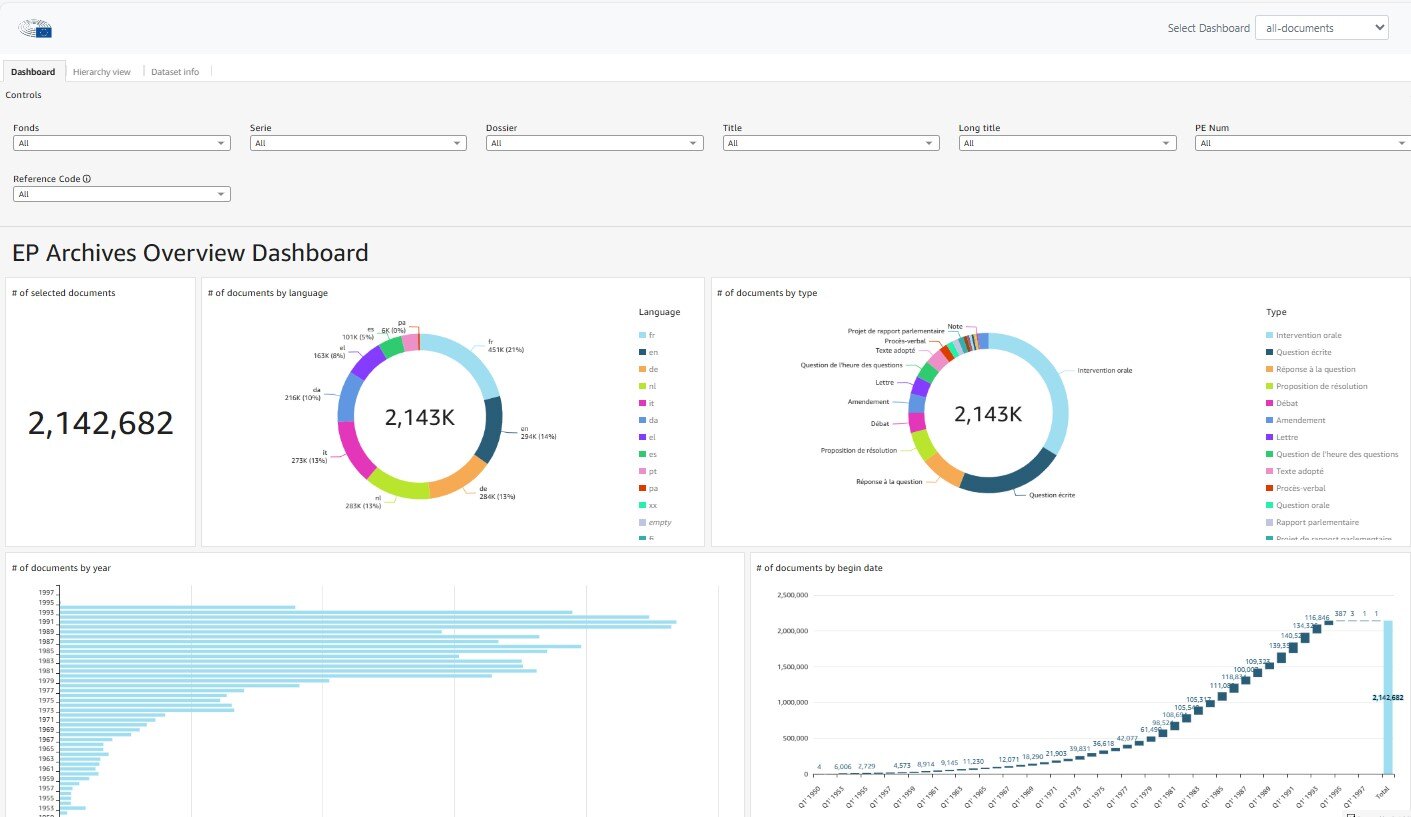The European Parliament has revolutionised access to its historical archives through an innovative AI-powered system called "Ask the EP Archives" or Archibot, which improves multilingual access to Parliamentary archives in support of research and democracy. This initiative is changing the way users interact with over 2.1 million official documents dating back to 1952, making European parliamentary history more accessible.
The introduction of Archibot has transformed the way researchers and the general public can search through the archives, addressing two fundamental challenges:
- Making vast archives easily searchable
- Ensuring universal accessibility
Researchers now have at their disposal functionalities like, also thanks to the incorporation of AI capabilities, functionalities such as:
- Advanced search and analysis
- Natural language query processing
- Contextual understanding of complex queries
- Real-time document retrieval in multiple languages
- Report generation
- Automated summary generation
- Cross-document analysis
- Custom report formatting options
- Multilingual support
- Comprehensive coverage of official EU languages
- Real-time translation capabilities
- Preservation of document integrity across languages
- Global accessibility
- Web-based interface
- Designed for universal access
- Mobile responsive functionality
The dashboard can be found at the following address: https://archidash.europarl.europa.eu/ep-archives-anonymous-dashboard. In its presentation, the EP refers to a novel concept: the use of Constitutional AI. In the explanation of Anthropic, it means constraining the AI output to a defined set of principles. The dashboard, which incorporates Anthropic's AI model, has been trained to generate useful responses that minimise harm, and is designed to win the user's trust. This is achieved through clear attribution, adherence to ethical AI usage guidelines, built-in safeguards and regular compliance monitoring.
The impact of such a tool promises to be huge:
- 80% reduction in document search and analysis time
- Optimised access to historical context
- Enhanced research capabilities
- Improved and intuitive visualisation
- Fast access to historical precedents
- Improved support for policy development
- Increased transparency in governance
The tool adheres strictly to EU data protection regulations, uses secure processing protocols and follows transparent usage policies.
But how can it best be used for research? Here are some suggestions:
1. Optimise your queries:
a. Be specific in your search terms
b. Use date ranges effectively
c. Combine several search parameters.
2. Generate reports:
a. Clearly define your output objectives
b. Select the appropriate document type
c. Indicate the preferred length of the summary.
The Archibot represents a significant leap forward in making European parliamentary history accessible to everyone. It has the potential to make the European democratic history more accessible and understandable to citizens around the world, and to serve as a model for how government institutions can increase transparency and public engagement in the digital age.

